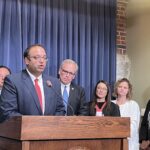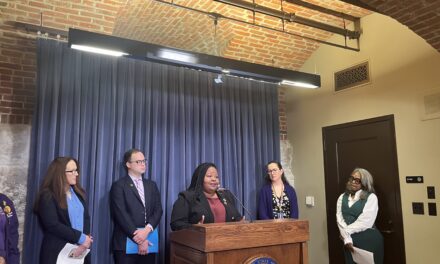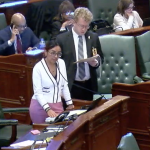
Despite the pandemic, UChicago Medicine performed a record number of transplants in 2021, mirroring a nationwide trend
For the second year in a row, the University of Chicago Medicine performed a record number of organ transplants despite the unprecedented challenged faced by hospitals during the COVID-19 pandemic.
Transplant teams at the Hyde Park-based academic health system reached an institutional record of 346 transplant surgeries in 2021, a 42% increase from the previous year. That far surpassed the 244 transplants performed in 2020, which also had set a record.
“Even though 2021 was an exceptionally difficult time for hospitals around the world, there continued to be patients with end-stage organ failure who needed life-saving surgeries,” said John Fung, MD, PhD, co-director of UChicago Medicine’s Transplant Institute. “This work wouldn’t have been possible without the selflessness of organ donors and donor families whose gifts gave our patients a chance at a new life.”
Kidney, pancreas and heart transplants charted the greatest increases between 2020 and 2021. The number of kidney transplants at UChicago Medicine doubled in 2021 to 174. There also were 11 pancreas transplants, a 120% increase over 2020. Sixty-one heart transplants were performed in 2021, a 36% increase over the previous year. The heart transplant figure also set a new state record, surpassing the high-water mark set by Northwestern Medicine with 56 transplants in 2018.
Last year’s increase mirrors a nationwide transplant trend. Hospitals across the U.S. performed a record number of organ transplants in 2021, according to the United Network for Organ Sharing (UNOS), increasing 5.9% over 2020. Kidney, liver and heart transplants were at all-time highs, UNOS reported.
A growing supply of donated organs may be fueling the trend. More people than ever before chose to donate organs in 2021, UNOS data showed. For the 11th consecutive year, the number of deceased organ donors grew, soaring to 14,000 people in 2021, a 10.1% increase over 2020.
While donor organs vary in quality, Valluvan Jeevanandam, MD, director of UChicago Medicine’s Heart and Vascular Center, said the health system’s experience with difficult and unusual transplant cases has given his team the expertise to safely and effectively utilize a wider pool of donor organs.
“It’s taken years of investment, development and dedication from our staff to cultivate a transplant program that can provide these kinds of life-saving surgeries,” said Jeevanandam, who has performed more than 1,000 heart transplants. “We’re honored that so many patients and families trust us to perform these surgeries.”
Federal statistics released in July 2021 showed UChicago Medicine’s heart transplant program had a 100% first-year survival rate and the shortest wait time for transplants, making it the best in the country, according to the data from the Scientific Registry of Transplant Recipients (SRTR). Half the people on UChicago Medicine’s waiting list received a new heart in 1.1 months, compared to the national average of 6.9 months.
The SRTR data also showed that UChicago Medicine had the highest percentage of African American heart transplants in the country at 42.2%.
UChicago Medicine’s leading-edge reputation for transplant surgeries dates back to 1904, when a cardiac surgeon developed the technique for joining severed ends of blood vessels. That procedure eventually made organ transplantation possible. The medical center continued advancing the field by pioneering the study of bone marrow transplantation. UChicago Medicine performed the first successful living-donor liver transplant in the world, the first segmental and split-liver transplants in the U.S. and the first pancreas transplant in Illinois.
Since then, UChicago Medicine has also performed 12 of the country’s 34 heart-liver-kidney transplants, including the historic “double-triple” in 2018 — back-to-back triple organ transplants. In 2020, the hospital did one of the country’s first transplants on a patient who required a new heart because of damage from COVID-19.






